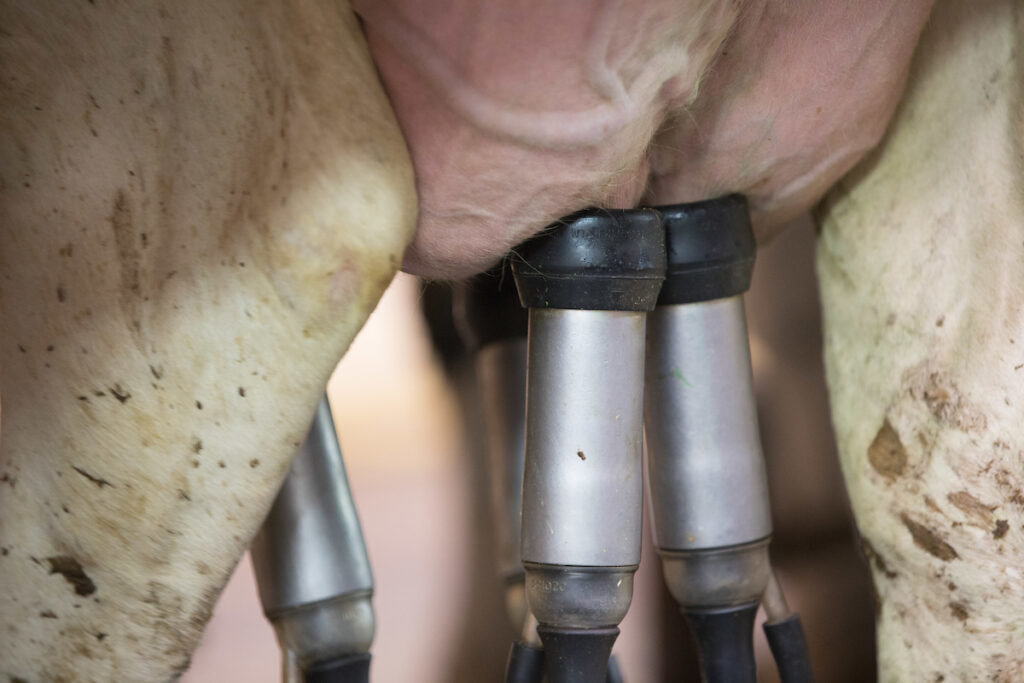Chief breeding index point increase worth £1.58, study shows
 © Tim Scrivener
© Tim Scrivener The economic value of the UK’s chief dairy breeding index, profitable lifetime index (PLI), is worth £1.58 in pre-tax profit for every point of PLI, according to new analysis.
For a typical 150-cow herd within the top 10% for PLI that equates to an additional margin of £30,099/year.
About the study
The AHDB-commissioned study, undertaken by Promar, used their Farm Business Accounts data to look at the performance of 410 black-and-white herds representing more than 104,000 cows.
See also: August 2021 bull proofs: Latest rankings
Milk recording and genetic figures were also assessed to examine the income and costs on dairy farms that are influenced by genetics.
What is PLI?
PLI is AHDB’s within breed genetic index designed for UK dairy farmers with year-round calving herds.
It represents the additional profit a high-PLI bull is expected to return from each of its milking daughters over her lifetime, compared to an average bull of £0 PLI.
Farmers can benchmark their herd’s PLI using AHDB’s Herd Genetic Report, which is available for all producers who are fully milk recording.
A genetically influenced margin (GIM) was created to explore the financial factors influenced by cow genetics, such as milk, calf and cull sales income and feed, herd replacements, vet and medical, artificial insemination (AI) and semen costs.
Results
Herds were grouped based on their PLI, with the top 25% earning a margin of £1,818 a cow a year compared with average herds at £1,670 and the bottom 25% at £1,529.
The improved financial performance of the higher genetic merit herds was due to the increased value of milk sales, amounting to an extra £283 a cow a year.
However, this was partially offset by the use of more concentrate, costing an extra £121 a cow a year, explains Promar consultant Tim Harper, who undertook the analysis.
Marco Winters, AHDB head of animal genetics, said: “We’ve long known that animals with better genetics have a huge impact on a farm’s bottom line. This study clearly shows the benefits of effective breeding policies over recent years.”
